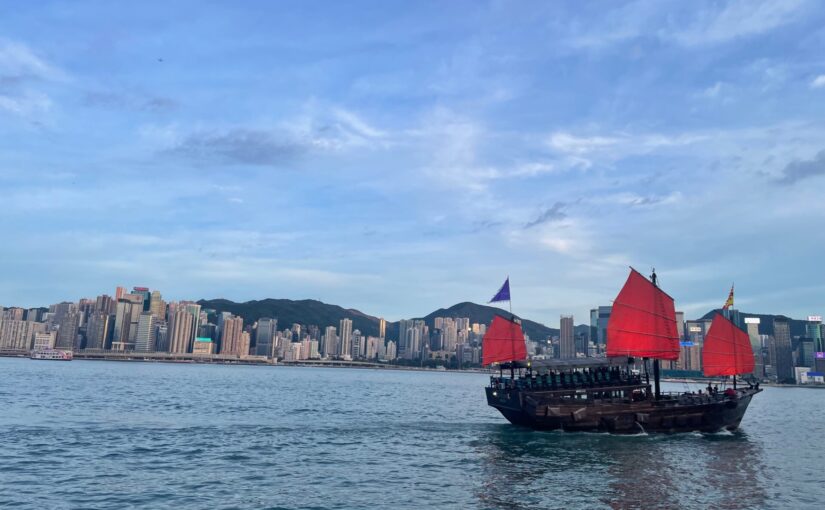Field of study in Wageningen: Bachelor Biotechnology
Study period exchange: 31/08/2023 – 19/12/2024
Country (exchange): China
City (exchange): Hong Kong
University (exchange): The Hong Kong University of Science and Technology
Faculty (exchange): School of Science, Division of Life Science
2. Motivation for exchange
Why did you choose to go on study exchange?
I wanted to go abroad to have a bit of a change in scenery and learn things from a different perspective.
What is the reason you chose for this country/university?
I preferred a place where they speak Mandarin Chinese or offer Mandarin courses, because I wanted to improve my Mandarin. The main languages in Hong Kong are Cantonese and English, but HKUST offered Mandarin courses. I also enjoy Chinese culture as I have lived in China before. I have visited Hong Kong before when I was younger and I remember that I thought it was one of the most impressive cities I had ever visited. The location of the university by the sea in the pictures also looked really nice.
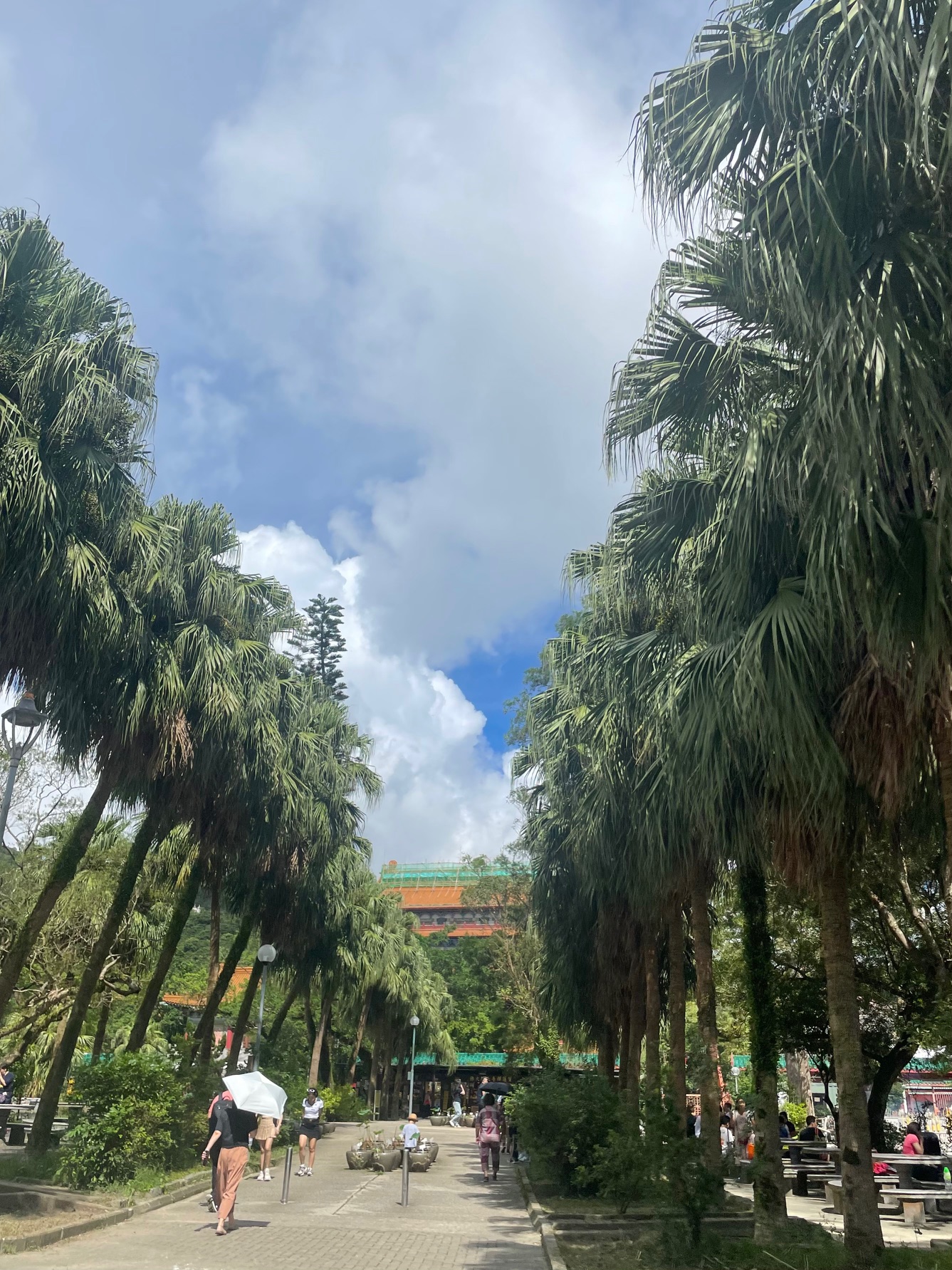
3. Accessibility to reach destination
Do you have any advice about reaching your exchange destination?
I think that the only reasonable option is by plane. From Hong Kong airport, the university provided pick-up busses to the campus.
4. University and studying
Could you provide some general information about the followed courses?
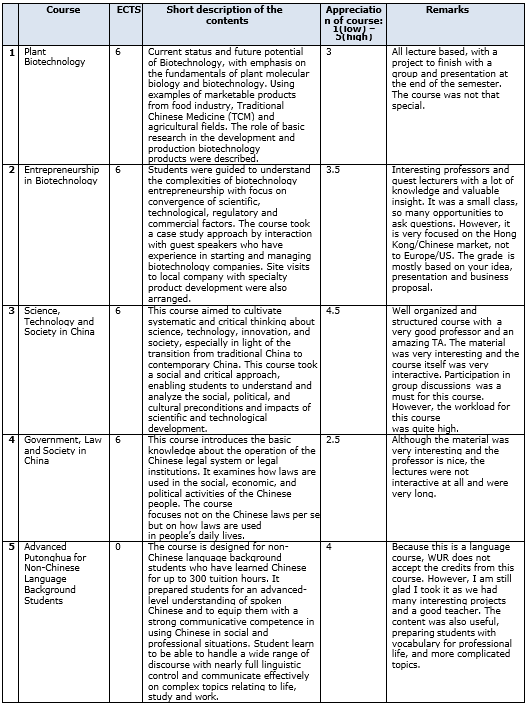
What is it like to study there?
It really depends on the course. Every teacher has a different style and the professors get a lot of freedom in the way they teach or exam their courses. The workload also depends on the course, some had a higher workload then others. But overall, I would say that for me the workload was about as high as at WUR.
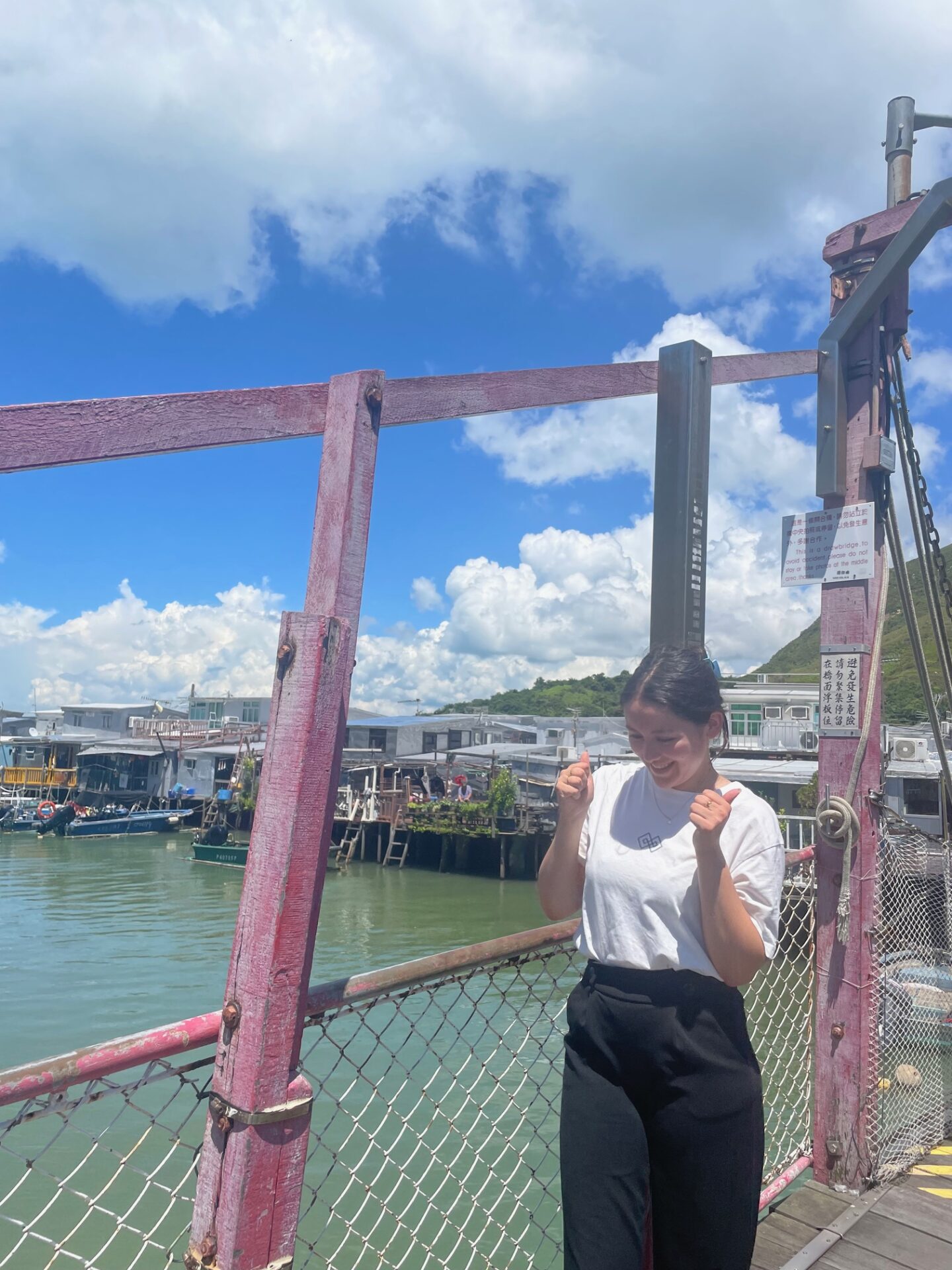
What is the culture of the university?
This again depends on the course. Some of the lecturers I could easily talk to and reach out to, but others I have never talked to.
The local students sometimes seem to think that the exchange students are not as hard working as them, so it can be difficult to find a group that is happy with an exchange student for projects. Because they all speak Cantonese with each other it can also be difficult, but most are willing to have a nice chat when you sit next to each other in the lecture hall.
What does the university offer students additionally?
The university has multiple different canteens with many food options, it can be difficult to cook at the dorms, so most students eat at the canteens every day, cost is between 30-50HKD per meal.
There is a small supermarket on campus, a Starbucks, McDonalds, barber, medical clinic, etc. There are also many free sports facilities such as two gyms, an outdoor swimming pool in summer and indoor in winter. Sports fields and rooms, water sports facilities, etc. There are also student clubs and sports clubs for many sports. Every student dorm has its own laundry facility, where you pay about 15-20HKD for washing and drying clothes. The university also offers many activities to students that are either free of charge or very cheap, such as going on a traditional Hong Kong boat at the avenue of stars or tours of some interesting places in the city. There are also activities held by the centre for language learning, which help to learn some Mandarin or Cantonese and try some traditional Chinese/HK activities with locals, such as learning to play Chinese games or tying good luck knots.
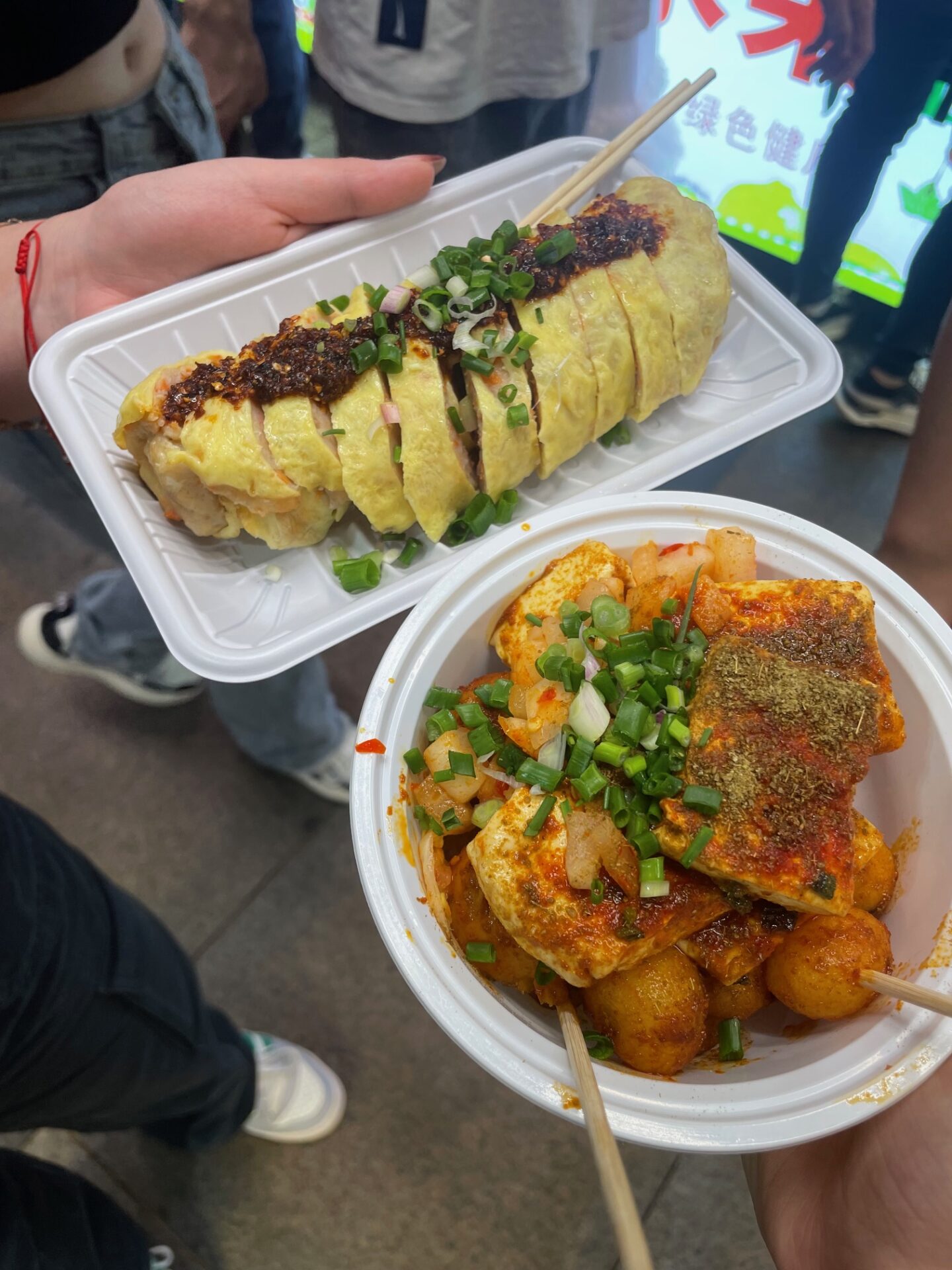
5. Housing-traveling-living
What are the possibilities for housing?
There are two types of rooms that you can choose from for exchange students. On- campus or off-campus. Almost everyone chooses on-campus, which is also the most convenient. I chose on-campus as well, which was a good choice. The rooms are all shared with a roommate, so two people are sleeping in the same room. On-campus room allocation depends on luck, some of the rooms are much nicer and newer than others.
The off-campus building are mostly newer and the rooms are nicer, however also slightly more expensive, less convenient and less exchange students. The rent is paid upfront together with the visa fee and insurance. In total it was 15000HKD for 4 months.
I don’t know any students who lived in a room that is not arranged by the university. It could be possible to find one, however the housing market in Hong Kong is extremely expensive, so I would not recommend it.
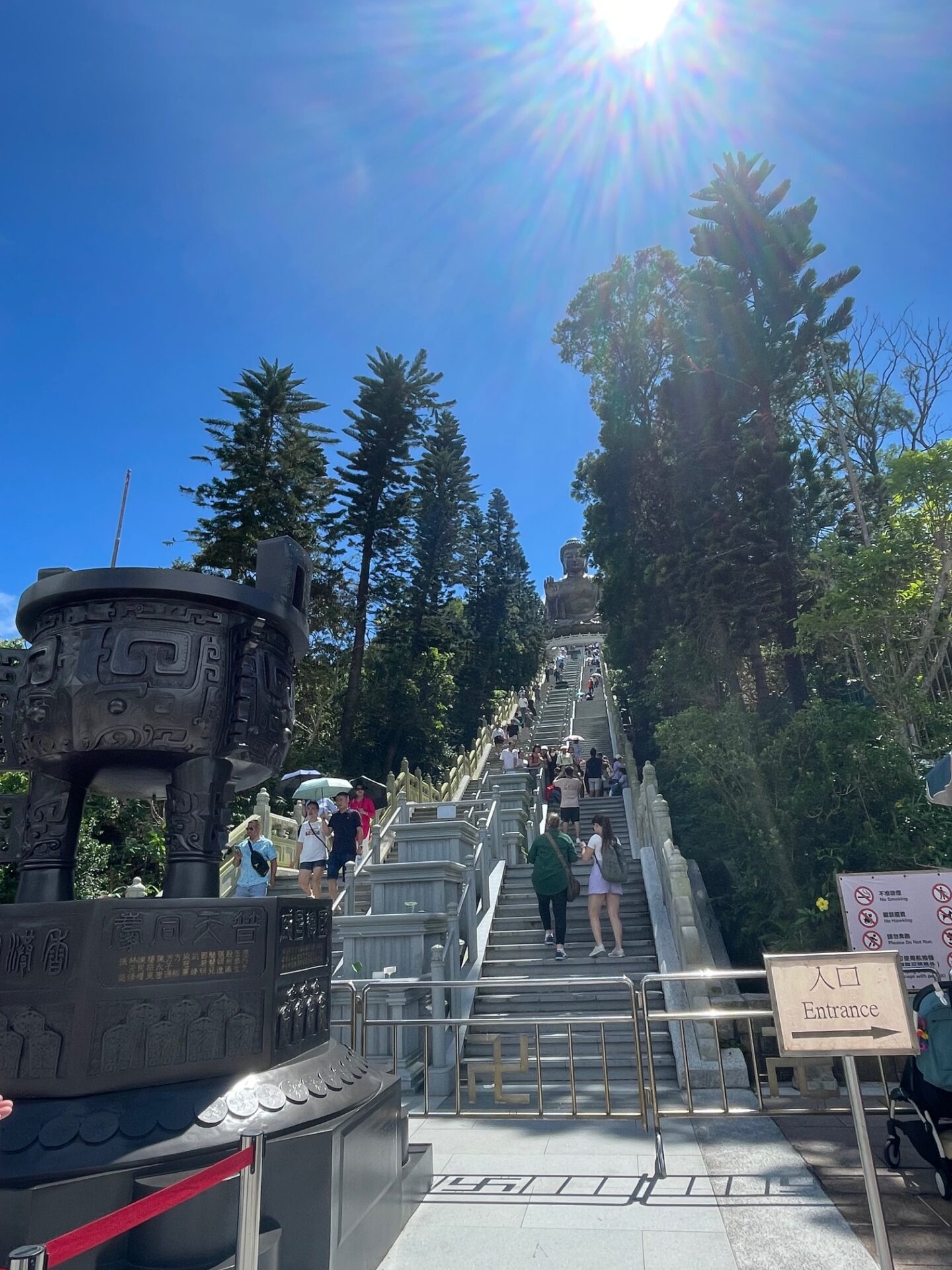
What is the culture of the country like?
The people in Hong Kong are always busy and live a very fast-paced lifestyle. Soon I got used to it and noticed that I also got a bit impatient. I realized that Hong Kong people just really like efficiency, which is something that I could appreciate as well! Once you get to know some locals, and when they take their time, they can be the most kind and helpful people.
At the university you get to try all sorts of different types of Chinese food for a cheap price. On campus there is a vegetarian canteen, with Chinese vegetarian food. However, as a vegetarian it could sometimes be more difficult to find good food outside of campus.
If you are in Hong Kong during some of the Chinese holidays, it is worth it to go downtown and enjoy the festivities. I was there during mid-autumn festival and the city was decorated with lanterns and there was a lot of good food. Hong Kong also feels very safe as a woman. I felt comfortable walking alone at night, which is a nice feeling!
Could you give some information about public transport infrastructure?
For public transport everyone uses an Octopus card. It costs 50HKD I believe, and you can buy it and top it up with cash. The card is very convenient as it can be used at most stores and restaurants as well! The most convenient and fastest mode of transportation is the MTR, you can use it to get almost anywhere in the city. It’s also not that expensive, around 10-20HKD per journey depending on how far you go. Taxi is more expensive, Uber works well too. It is mostly convenient to take an Uber or taxi from the city centre to the university late at night when the MTR or buses are not driving anymore. Especially when splitting with 4 or 5 students, it is just a bit more expensive than public transport. The dorms are on campus so you can get to the lectures on foot by taking the elevators up the mountain. To get from the university to the city centre you will have to first take a bus to the MTR station and then take the MTR. It takes about 45-60 min to get from the university to downtown.
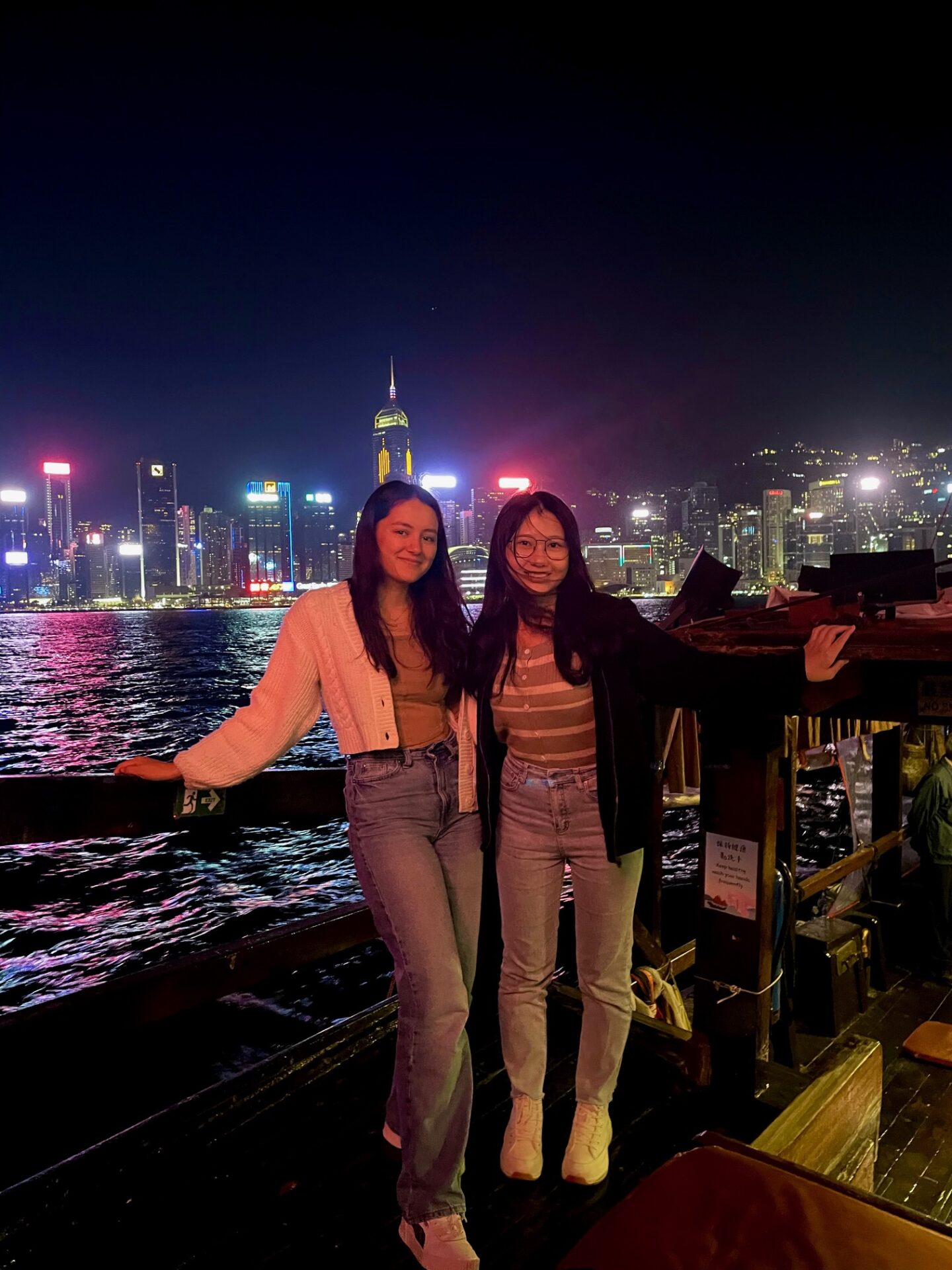
6. Expenses
Can you give an indication of your expenses for/during your exchange?
Ticket there: 600-800 euros per one-way flight.
Visa if applicable: included with rent and insurance.
Vaccinations if applicable: none.
Insurances (extra, if applicable): included with visa and rent.
Housing costs & type of housing/accommodation: for the whole semester a shared dorm room (4months): 15000HKD This is similar to what I pay in Wageningen for rent.
Groceries: about 500-1000HKD per month (I did not buy groceries that often, because I mostly ate at the canteens).
Public transport: about 300 HKD per month.
Restaurant/going out for dinner: including canteens: between 1500-2000HKD per month.
Daytrips/sight-seeing: This was mostly for free, because of the university activities.
About 100-300HKD per month
Additional remarks regarding expenses?
The grant from Erasmus was all used up by the flight tickets, but overall living expenses were not much more expensive to me than in Wageningen. I saved some money before going on exchange, so I used it to travel to different countries. Because of the location of HK in the middle of Asia you can travel to different Asian countries relatively cheaply with budget Asian airlines. Alcohol however is much more expensive in Hong Kong than in Wageningen!
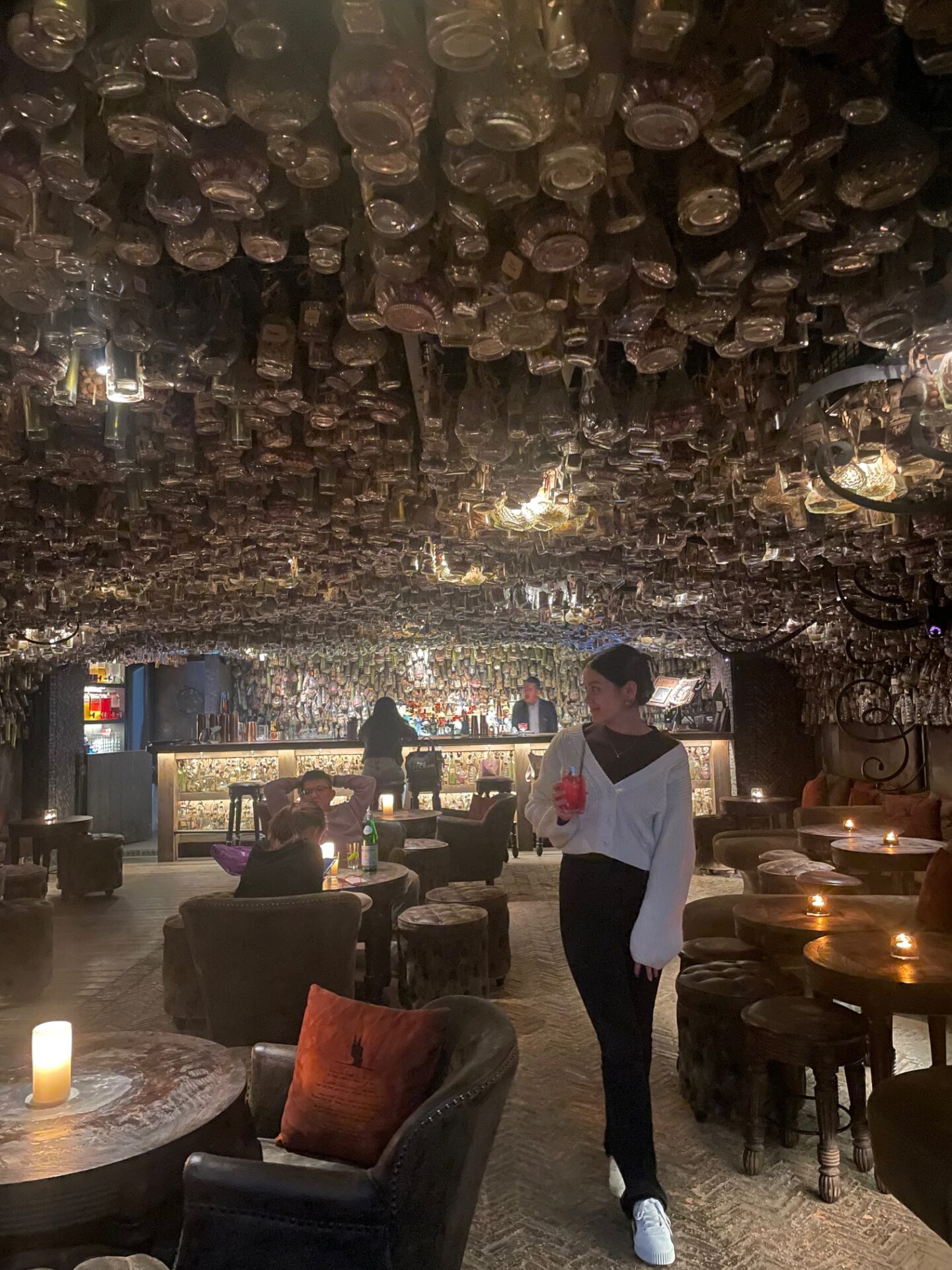
7. Free time
What are must-sees in the area?
The Avenue of Stars is definitely a must see and take the Star ferry over the water! The ferry costs only 5HKD. Victoria’s peak is also a really nice place to look out over Hong Kong. To get there you can take the peak tram up or take a bus. Lantau Island is also extremely nice, you can get there by MTR and take a cable cart over the mountains and climb up to the big golden buddha. Tai O is a fishing village on Lantau Island, with the houses built on sticks/poles in the water. There you can take a boat ride for about 40HKD to look at the houses from the water and if you are lucky you can spot the rare Chinese pink dolphins in the summer! Sai Kung is another area which has beautiful hiking trails and you can rent a tent to camp on the beach.
The horse races are also a must see and there will be races every Wednesday during horse race season. Entry is free and the atmosphere is really special there!
A day trip to Macau by ferry is also easy to do and it is quite different from Hong Kong. Shenzhen is also a must visit! It is just over the border in China and you can get there by MTR and there is amazing cheap food! You can also take the high-speed train to get from Hong Kong station to almost anywhere in mainland China. It’s very convenient and easy, however can sometimes be pricey. There are many places you can travel to and there are many other exchange students who would want to travel together! Vietnam, Thailand, Philippines, Taiwan are all relatively close to Hong Kong, you can take a budget Asian airline to get there.
What does not appear in a travel guide, but is definitely worth seeing/doing?
The hidden waterfalls on Lantau Island! During Summer there is a rainy season in Hong Kong and you will be able to visit some beautiful waterfalls. Not many people know that there are some waterfalls that can be difficult to find, but with the possibility to swim! It is like a private pool in the middle of nature.
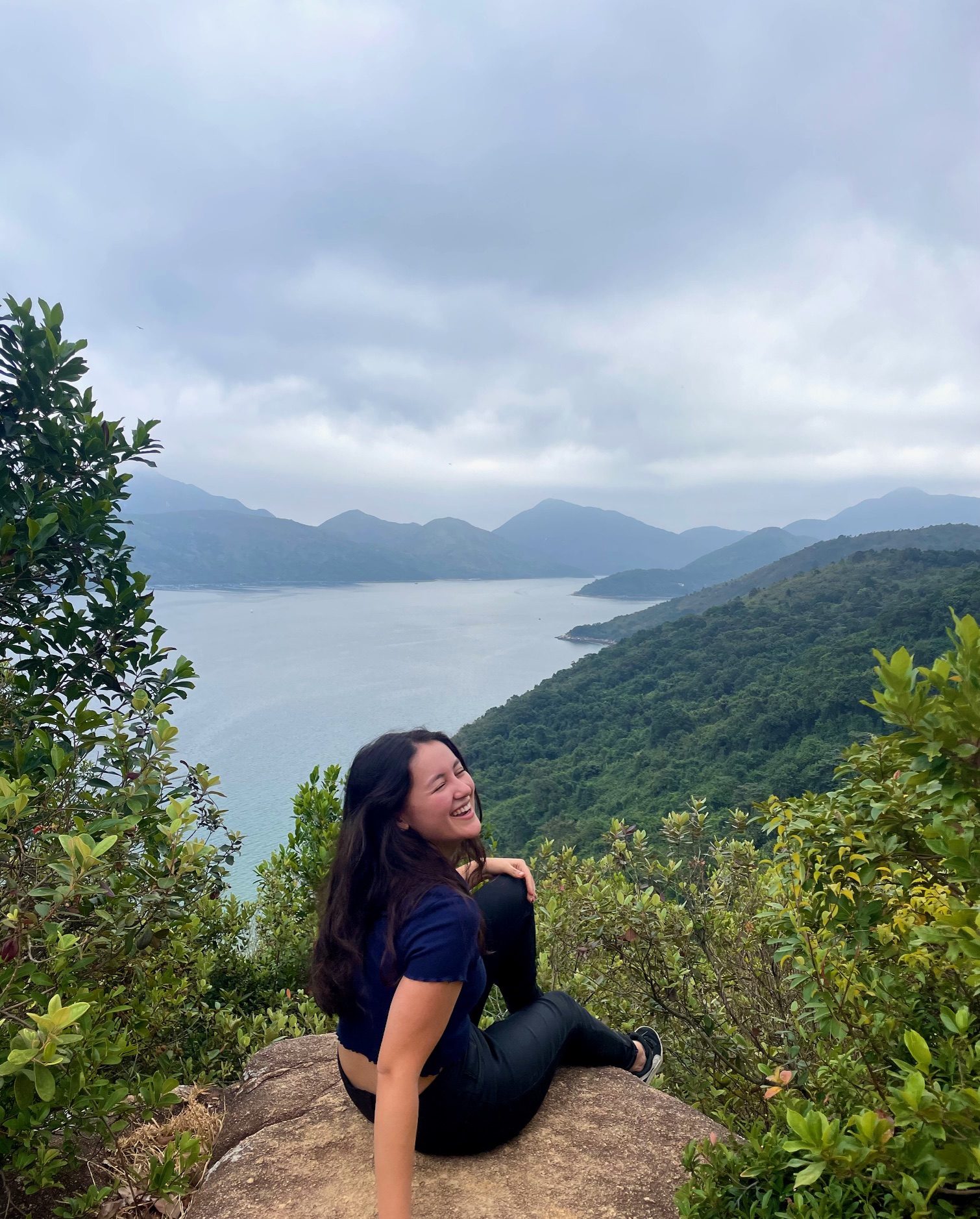
Do you have general tips and tricks about leisure time?
Make the most of your time and visit some places in the beginning of the semester, because afterwards you will get busy with exams. If you want to swim in the sea, go surfing etc, do it during the summer months as the water will be the perfect temperature for that. For restaurants I recommend to try dim sum, or Tamjai. Tamjai is a noodle chain where you can choose your own toppings and it is quite cheap!
8. Challenges & best moment abroad
What challenges did you encounter and how did you overcome them?
It was challenging at first to adjust to having a roommate, who has a different routine, habits and culture. After a while we got used to each other, but communicating well with each other is important.
What is your best memory of your time abroad?
I don’t have one specific memory that I cherish most, but I enjoyed all the trips and travelling I have done. I have never visited so many different places in such a short amount of time and I gained so much confidence from this. I met some amazing people on exchange as well and still keep in touch with some of them. Traveling with a friend I made through this exchange in Hong Kong to Shenzhen and Tokyo are among some of the most fun and spontaneous things I have ever done!
8. Contact Details
Would you like to ask Bleike more questions about her exchange?
Send her a mail: Bleike.vanzelst@wur.nl

